In the midyear of 2023, CTL called on UA&P faculty to submit proposals for action research projects. The challenge: Find creative solutions to address issues in the blended learning classroom through thoughtful yet simple, well-designed experimental approaches. The ultimate goal was to promote positive change, strengthen the University’s teaching capacities, and provide valuable insights into best practices for enhancing the teaching and learning experience.
By the end of the year, after much review with our selection committee, we were able to pick three exciting proposals to support throughout the academic year 2023-2024. Fast forward one year and the researchers were ready to show off their progress—with some final results to share. All of this came together at the Research Colloquium 2024: Action Research Projects, an event organized with the support of the University Research Office (URO) and the College of Arts and Sciences (CAS).
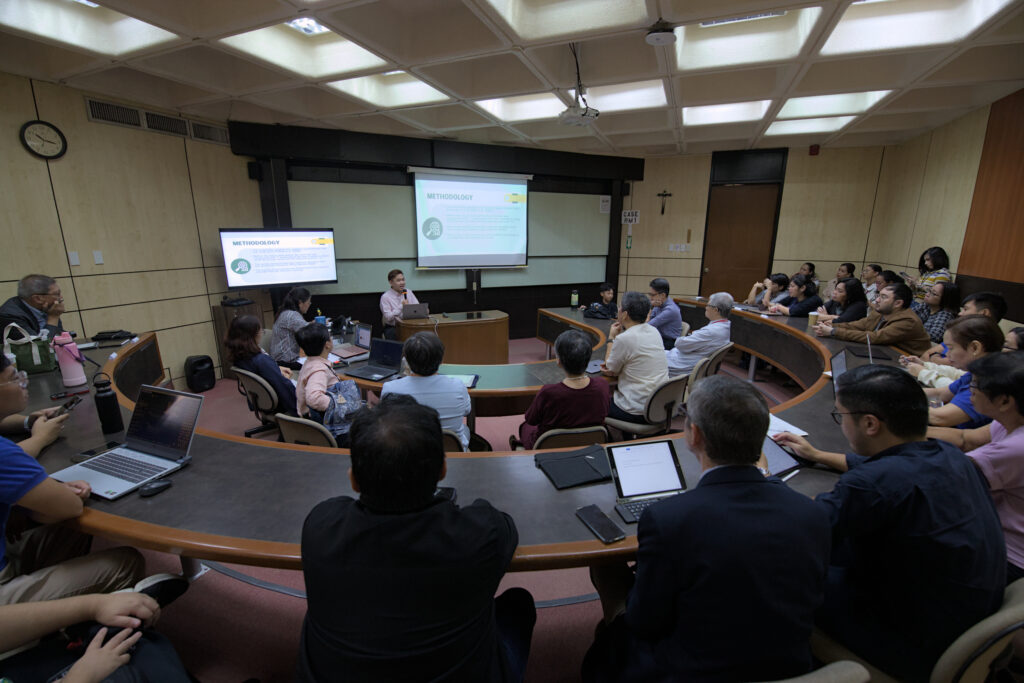
Read our notes on each of the presentations below!
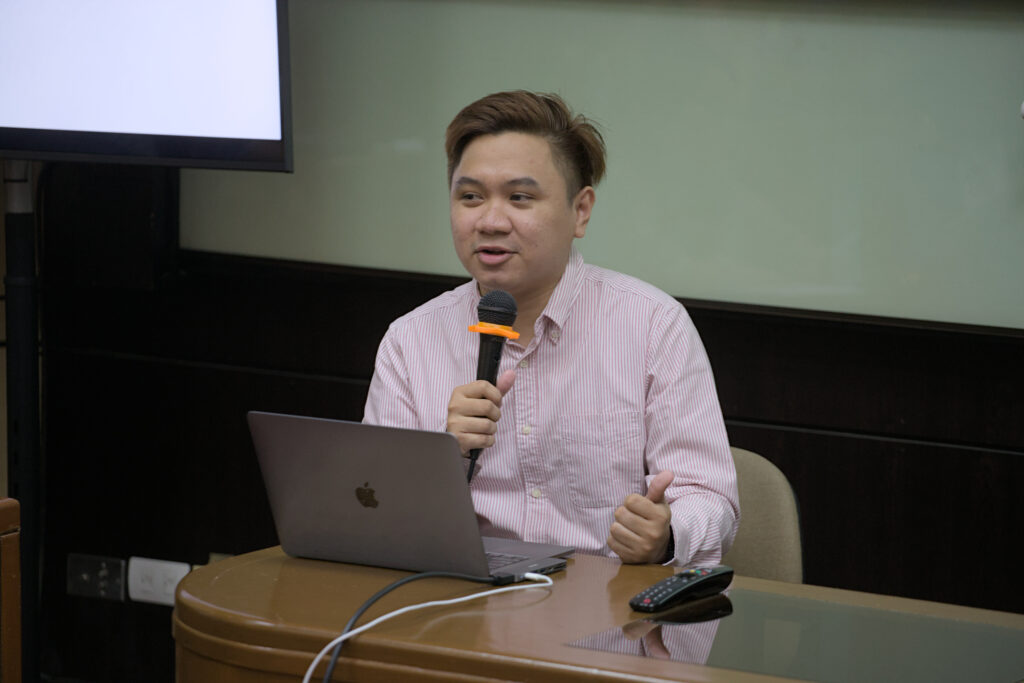
Kicking off the presentations, Mr. Patrick Zeta from the School of Management (SMN) dove into his research titled, A Post-Pandemic Evaluation of E-Learning Systems Success in UA&P. Now that classes are back on campus, he set out to see if the e-learning systems that kept things running during the pandemic are still benefiting students in a meaningful way.
Using the EESS Model (Al-Fraihat et al., 2020), Sir Patrick surveyed students on system quality (e.g., instructor, technical, service quality) and system success (e.g., perceived satisfaction, actual use, and student benefits).
Some Key Findings:
- Instructor Quality positively impacts Perceived Usefulness.
- Technical System Quality and Perceived Usefulness significantly boost Perceived Satisfaction.
- Service Quality, Educational System Quality, and Perceived Usefulness strongly influence Actual Use.
- Perceived Usefulness, Perceived Satisfaction, and Actual Use all have a positive impact on Student Benefits.
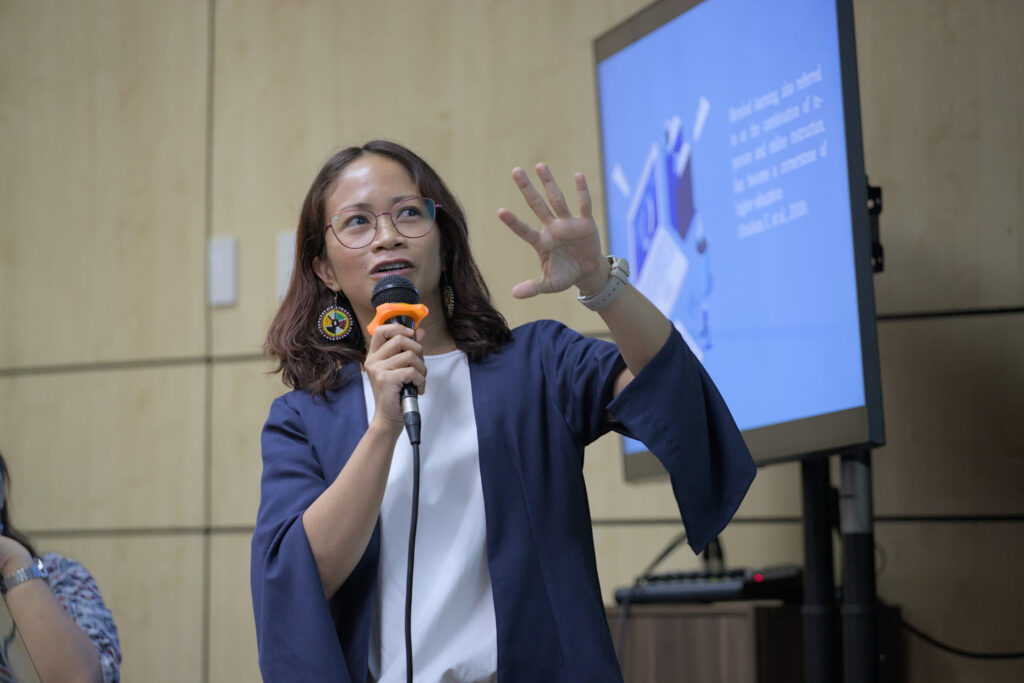
Next, Ms. Zyra Lentija from the College of Arts and Sciences Philosophy department (CAS-Philosophy) with her research project, The Classroom as Communio Personarum: The Wojtyłan Notion of Participation in Teacher-Student Dynamics in a Blended Learning Setup for UA&P’s Junior College. It focuses on fostering a sense of community by recognizing each student as a unique individual and promoting collaboration.
Inspired by Karol Wojtyła’s personalist philosophy, the study is all about creating a person-centered classroom where every student feels valued, motivated, and ready to thrive. The big question: How does implementing this approach influence Junior College students’ motivation and disposition to learn?
To find out, Ms. Zyra is diving into qualitative methods, including the experience sampling method (ESM) and classroom interventions. The project is set to roll out during the academic year 2024-2025, hoping to spark new insights into how a sense of community can transform learning.
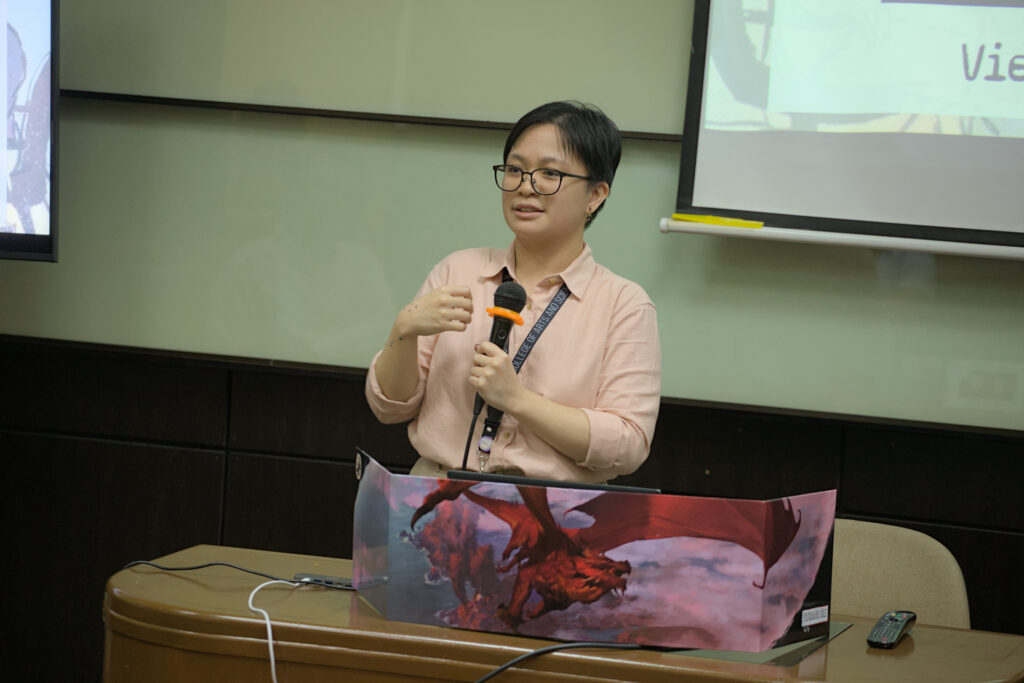
Lastly, Ms. Andrea Abulencia, also from the College of Arts and Sciences, but from the Arts department (CAS-Arts), shared her unique project, Performance Roll: The Critical Role of Engaging in Collaborative Play Between Teacher as GM and Students as Players. Because she noticed a dip in student engagement and some stagnation in her own teaching, she decided to inject some fun into her Fine Arts: Performing Arts course with gamification. The goal: Energize the classroom using interactive role-playing games and help students understand and appreciate performing arts through a gamified approach.
Ms. Andrea adapted Kids on Bikes, a collaborative role-playing game where players are small-town heroes unraveling mysteries. She was able to adjust the game’s mechanics and make simpler instructions to suit her course.
Some Key Findings:
- Students enjoyed creating characters, making relationships and stories among their characters, and showed increased engagement.
- When implemented thoughtfully, gamification can significantly enhance student involvement and enrich traditional teaching methods.
- Collaborative role-playing not only provides a creative and enjoyable way to learn but also offers a safe space for students to experiment with and explore new ideas and concepts. This approach shows great promise in making the educational experience more engaging and impactful.
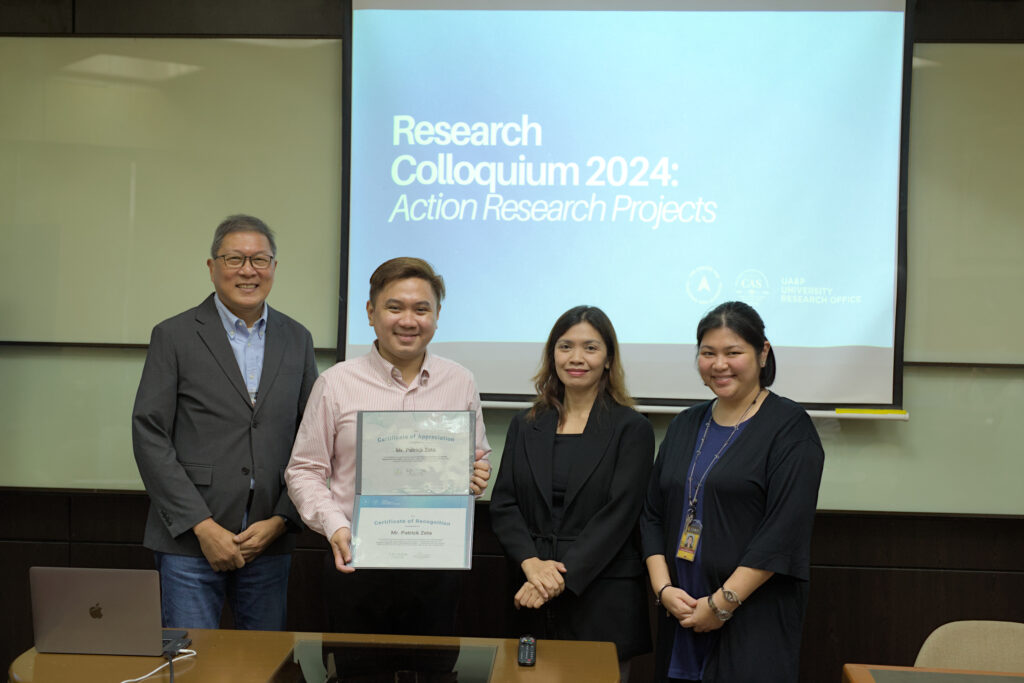
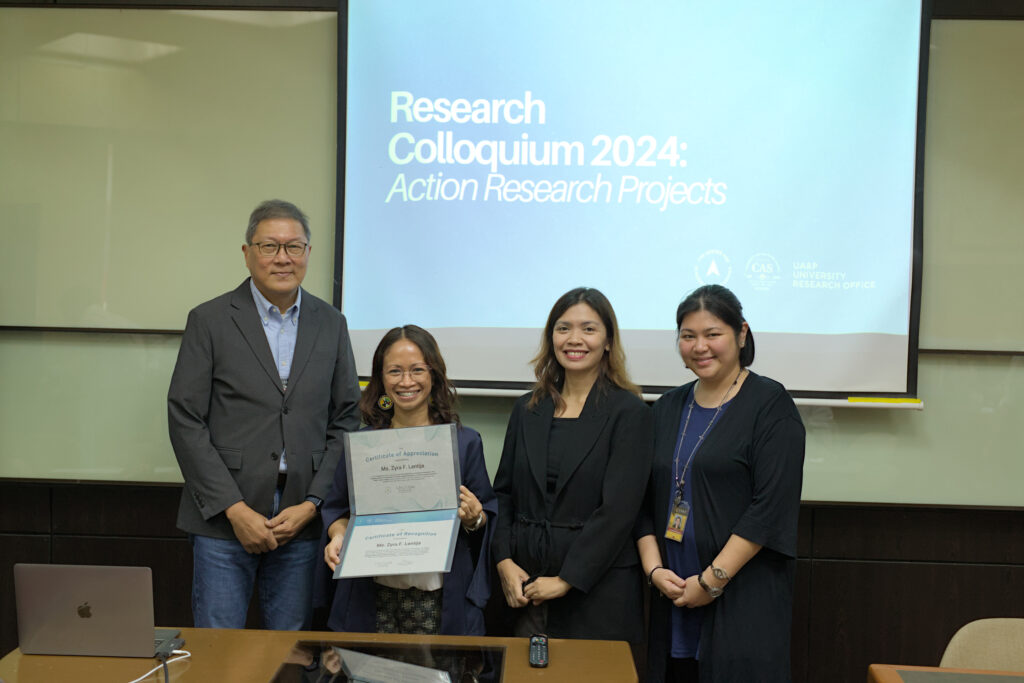
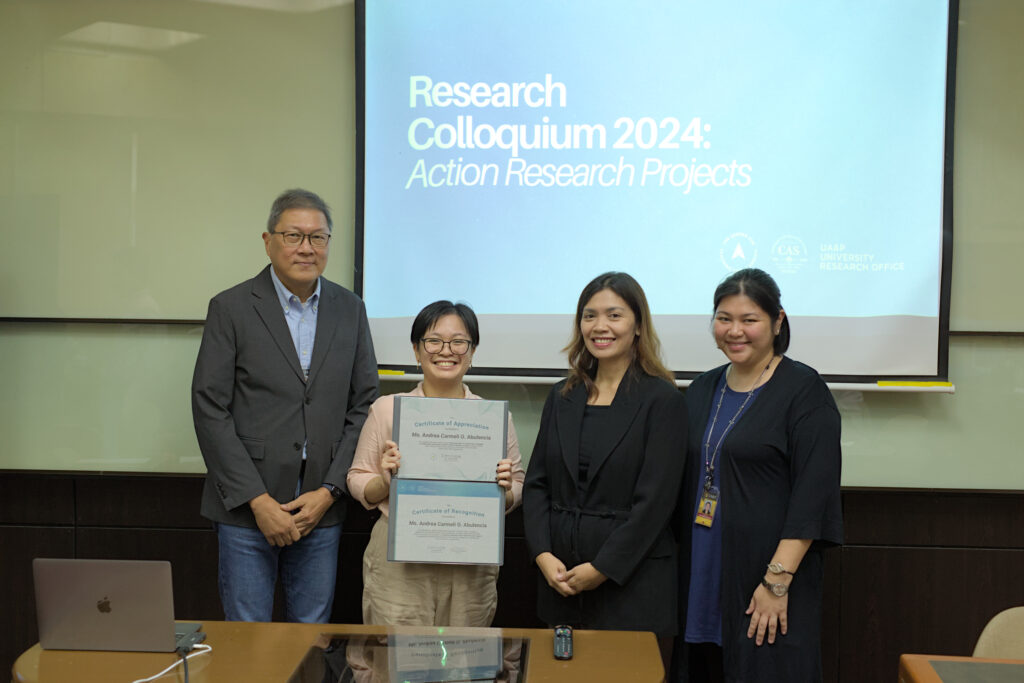
The event was a tremendous success! We, along with URO and CAS, were thrilled to showcase the well-made, innovative projects crafted by our amazing faculty members. We’re hoping to see this spark a wave of new teaching and learning research initiatives at UA&P.
Curious to learn more about these presentations or eager to do action research yourself? Feel free to reach CTL at [email protected] for more information on getting started with your own research projects.